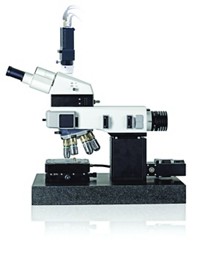Advertisement
Grab your lab coat. Let's get started
Welcome!
Welcome!
Create an account below to get 6 C&EN articles per month, receive newsletters and more - all free.
It seems this is your first time logging in online. Please enter the following information to continue.
As an ACS member you automatically get access to this site. All we need is few more details to create your reading experience.
Not you? Sign in with a different account.
Not you? Sign in with a different account.
ERROR 1
ERROR 1
ERROR 2
ERROR 2
ERROR 2
ERROR 2
ERROR 2
Password and Confirm password must match.
If you have an ACS member number, please enter it here so we can link this account to your membership. (optional)
ERROR 2
ACS values your privacy. By submitting your information, you are gaining access to C&EN and subscribing to our weekly newsletter. We use the information you provide to make your reading experience better, and we will never sell your data to third party members.
People
Brief Chronicle Of The Laser
March 8, 2010
| A version of this story appeared in
Volume 88, Issue 10
1917
Albert Einstein derives the theoretical basis for the laser. (1)
1954
The "maser," the microwave forerunner of the modern laser, is born.
1960
The first working (ruby) laser is introduced. (2)
1965
The compact laser disc is invented. (3)
1969
Lasers' wavelength range is expanded with the advent of the organic-dye laser.
1974
A laser-driven barcode scanner is used for the first time in a grocery store. (4)
1986
The Ti:sapphire laser ushers in a new era of ultrafast science. (5)
1987
Vibrational SFG spectroscopy is first used to analyze monolayers.
1988
The high-power fiber laser gets its start.
1990
Multiphoton microscopy is implemented for the first time. (6)
1990
2-D IR spectroscopy of peptides is introduced.
1994
Superresolution fluorescence microscopy is developed.
1999
Ahmed Zewail wins the Nobel Prize in Chemistry for femtosecond spectroscopy. (7)
2001
The first attosecond laser pulses are used to probe electronic processes.
2008
Fluorophore-free stimulated Raman scattering microscopy of living cells is first demonstrated.










Join the conversation
Contact the reporter
Submit a Letter to the Editor for publication
Engage with us on Twitter